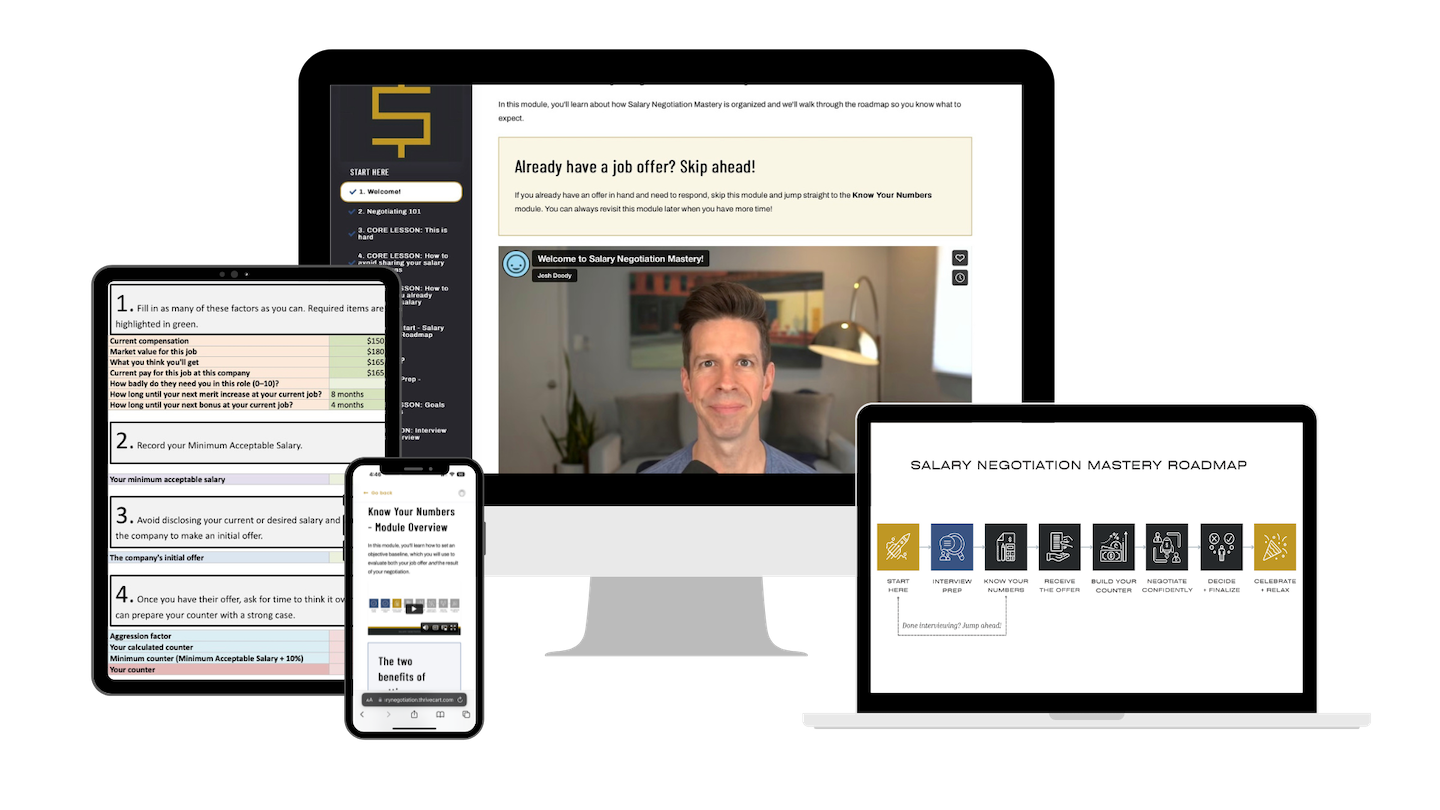Negotiating job offers
How watching Shark Tank will improve your negotiation skills
Learn how to think like a Shark
by Josh Doody
Negotiation can be intimidating. One way to improve your negotiation skills is to practice negotiating, but what if you aren’t ready for that? How can you improve your negotiation skills without practicing actual negotiations?
You can improve your negotiation skills by just observing and thinking about negotiations. The trick is to find negotiations to observe and think about. Fortunately, ABC’s Shark Tank is on almost every Friday, and every episode has several negotiations you can watch.
Here’s a four-phase approach to improve your negotiation skills by watching Shark Tank.
Phase 1. Watch Shark Tank
Each episode of Shark Tank has four negotiations. Just watching these negotiations will make you more comfortable with negotiating.
Here are some things you can watch for:
- What does the flow of a typical negotiation look like?—watch the back-and-forth between the Sharks and entrepreneurs, and among the Sharks
- How big are the gaps are between the entrepreneurs’ and Sharks’ expectations—are they “far apart” or “pretty close” in their valuation of the business and overall expectations for the deal?
- How often do they make a deal?—Sometimes there’s no deal. What does that mean? Does anyone “win” or “lose” even without making a deal?
- What type of deal does each Shark prefer?—For example, Mark Cuban likes to invest in technology-related businesses, and Kevin O’Leary likes royalty deals.
- What common mistakes do the entrepreneurs make?—For example, many entrepreneurs over-value their idea rather than valuing their business.
Once you have a good feel for the factors mentioned above, you’ll naturally start forming opinions about the offers being made. That’s when it’s time to move on to Phase 2.
Phase 2. Evaluate each offer and try to determine if it’s “good” or “bad”
The goal of the negotiation is to get to a deal that’s “good” for all parties. They don’t always get there, but they usually do.
Each time someone makes an offer, consider whether it seems “good” or “bad”, starting with the entrepreneur’s initial offer during their pitch. You’ll notice that an offer is often “good” for one party and “bad” for another—that’s why they’re negotiating.
Any time you have an opinion, try to articulate why you feel that way. “That’s a bad deal for the Shark because…” or “That’s a really good offer for the entrepreneur because…”
Phase 3. Pick a side and try to anticipate their next offer
At first, you’ll find this difficult, but the more you watch, the more you’ll realize that each Shark has a preferred way to structure deals and get a return on their investment. Once you have a good sense for how each Shark approaches a deal, you’ll start anticipating the kinds of deals they pursue, and even the details of the offers they make as they pursue those deals.
Put yourself in the entrepreneur’s shoes and think about how you would respond to a Shark’s offer. Here are some things to think about from the entrepreneur’s perspective:
- Would you take the Sharks’ last offer?
- Would you turn it down cold?
- Would you stall for time to hear other offers?
- Or would you counteroffer? If you would counter, what would your counter be?
The more you do this, the better you’ll get. You might guess that Kevin will suggest a venture debt deal with a payback period of 2 years at 7% interest. Or you may think that Barbara is interested in doing a deal, but only if Robert and Lori will join her and they can get at least 10% equity each. And sometimes Daymond will simply say, “I don’t think you need my help.” before dropping out of the negotiation.
Phase 4. Anticipate how each Shark will feel about the other Sharks’ offers and deals
This requires understanding how the Shark and entrepreneur are thinking during the negotiation, and then considering how the other Sharks would approach the same deal and how they would evaluate the ongoing negotiation even if they’re already “out”.
You’ll realize that the Sharks are actively doing this exercise (the one I’m writing about here) for every deal in the Tank—they’re watching the negotiation, trying to anticipate the next offer by a Shark or entrepreneur, and evaluating the deals in real time to determine if they can make a better deal or add more value. They’re also gathering information they will use to their advantage in future negotiations.
You can do this too. The more episodes you watch, the better you’ll get at anticipating offers and evaluating deals. And that means your own negotiation skills will improve, just by watching Shark Tank.

